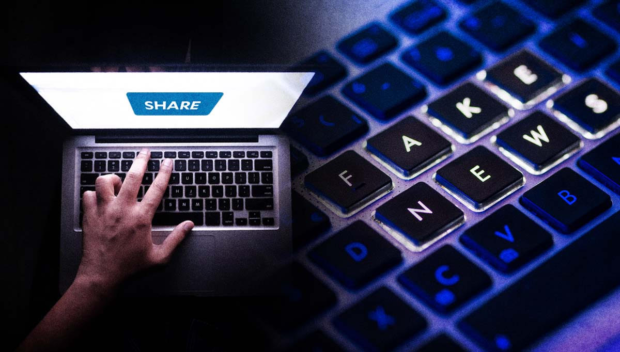Still blaming ‘bobotantes’ for the spread of fake news?

FILE PHOTO
It must be so convenient to just blame the “gullible masses” for the spread of fake news.
But a new report on disinformation in the Philippines challenges this “elitist” framing of the problem, noting that at the core of disinformation networks is a brain trust of propaganda gurus, troll farm operators and glib “middle-class creatives” enlisted in the service of political interests for a handsome fee.
The fight against fake news, the report said, should therefore include placing the “disinformation economy” under scrutiny and revisiting the ethical standards that advertising and public relations practitioners should be upholding, especially those who are funding celebrity “influencers” for disinformation campaigns.
“In reality, it’s an open secret that many advertising agencies, PR consultants and influencers earn big bucks during political campaigns,” said Jonathan Corpus Ong, one of the six coauthors of the study titled “The Evolution of Disinformation in Three Electoral Cycles.”
Beyond fact-checking
“We need researcher-journalist coalitions that can trace the money trail of the country’s disinformation economy. That can be the starting point to create pathways to accountability,” said Ong, an associate professor of communication at University of Massachusetts Amherst and at Harvard University.
Article continues after this advertisementReleased on July 4, the report was funded by the international non-profit Internews and retraced the rise of tech-aided disinformation as a political tool in the country since 2016, mainly during the campaign period leading to the election of Rodrigo Duterte as President.
Article continues after this advertisementInternews produced the report in the hope of helping like-minded organizations or advocates in their own counter-disinformation efforts.
“For disinformation studies to actually have an impact on the problems it claims to want to address, we need to complement verification and [media] literacy efforts with diverse accountability pathways that can target local industries of disinformation production,” the report said.
Fact-checkers and researchers in the digital space should be more empowered to call out unfair and unethical practices, it added.
‘Presocial media myth’
Blaming the “masa” or “bobotantes” (dumb voters) for the spread of lies and black propaganda during an election season just perpetuates a “very old, presocial media myth,” Ong said in an Inquirer interview, summing up one of the points raised in the report.
“What if we shift the setting? Instead of spotlighting the masa and their beliefs, we focus on the middle-class and their voting patterns,” he added. “What if we tell stories about middle-class creatives crafting disinformation campaigns for a fee? What if our video explainers focus on the corruption and complicity among [our] political and economic elites?”
One way to hold disinformation actors accountable is through legislation that can help expose fake news or troll operations, Ong said.
Regulatory gaps
Another is to secure the commitment of advertising and public relations professionals to adhere to their own code of ethics when handling political clients, he added.
At present, the report said, there are still “clear gaps” for self-regulatory mechanisms within the advertising and PR industries where disinformation operations “continue to hide in plain sight.”
Politically driven disinformation content is largely tied to “unethical and unfair campaigning practices like overspending and skirting regulatory loopholes.”
“Civil society, journalists, and academics need to lobby policymakers to introduce new mechanisms for data collection and monitoring of electoral campaign content and expenditure,” it said. “We need a more robust transparency and accountability framework for election monitoring… while introducing punitive sanctions for abusers.”
The report also encouraged the promotion of antidisinformation “champions” within the ad and PR industries “to advance organizational reforms from within.”